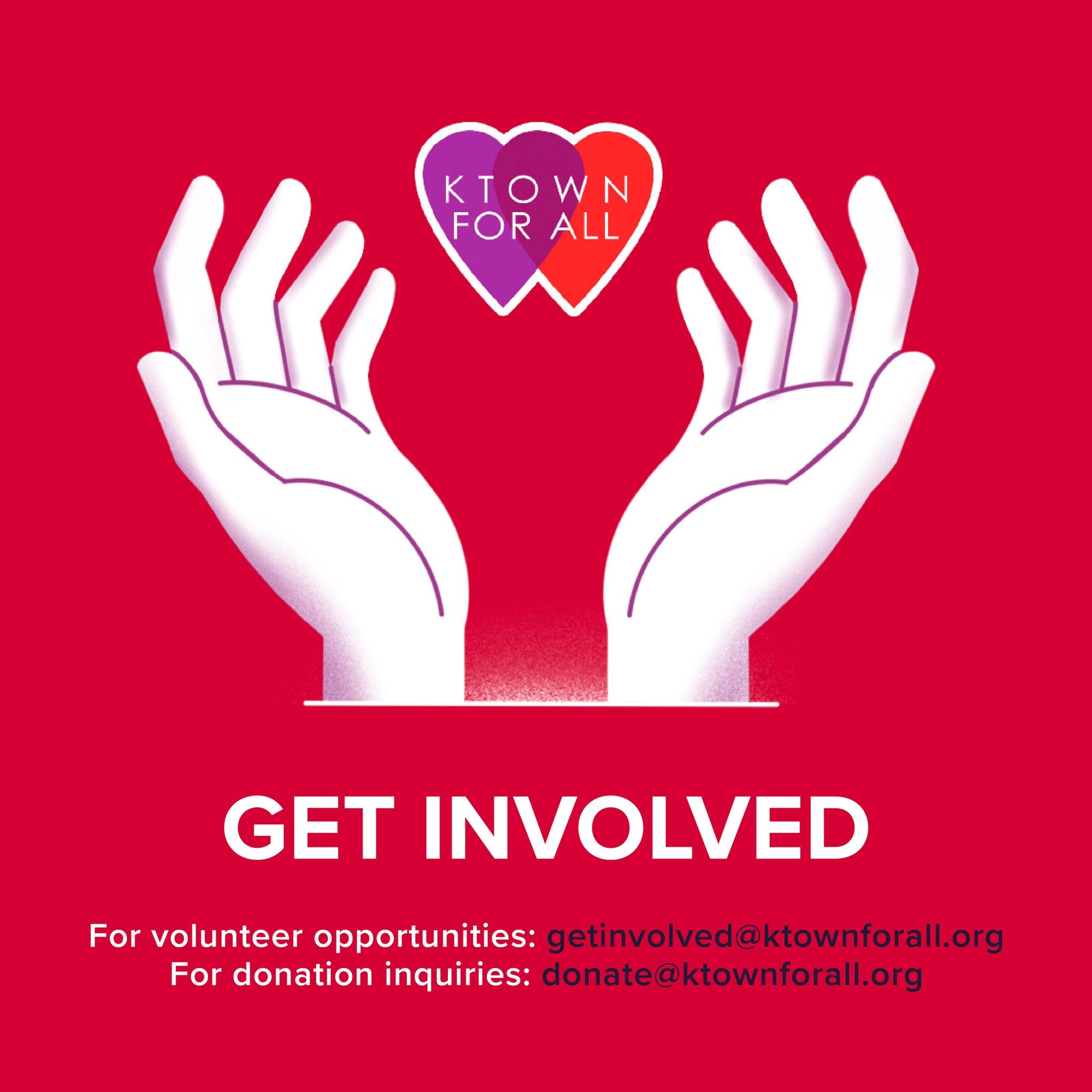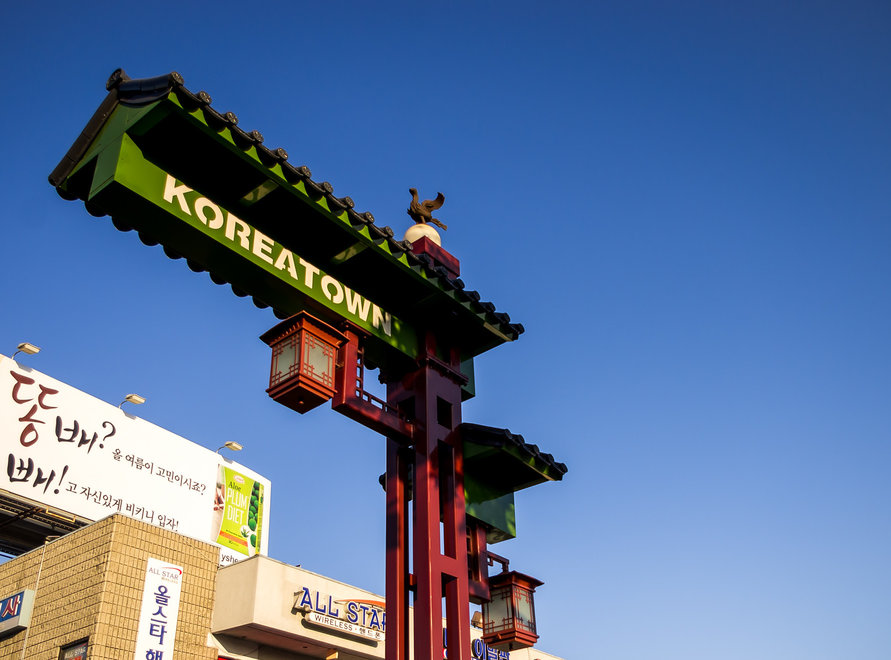At Asia Art Tours’ we’re convinced that mutual aid and building societies that care for everyone, will be the only way to oppose the Capitalism that brought us Covid-19, Climate Change, and ‘Work or Die’. The only way we can build this different world is if each of us contributes in our own way.
One of the more exciting mutual-aid efforts is the group ‘Ktown for All’, an all-volunteer homeless outreach and advocacy org in Ktown LA. To discuss their involvement with Mutual Aid and making Ktown for everyone they joined me for an interview.
Asia Art Tours: For the group, Ktown for All – could you give us a brief introduction? When was the group founded? What were the original reasons for its founding, and how have those reasons evolved over time?
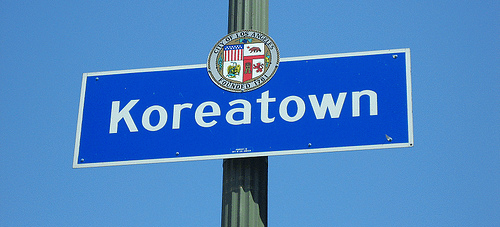
Ktown for All: Ktown for All was formed after the anti-shelter protests in Ktown in 2018. We wanted to see a Koreatown that chooses love and compassion rather than NIMBYism. Through planning our own actions and supporting those of allied groups, our goal is to amplify the voice of the unhoused in the political process in Los Angeles. Our political organizing focuses on advocating for more housing and services for homeless Angelenos, equitable housing policies in LA and across the state, and eliminating policies that criminalize homelessness. Our efforts at advocacy begin with getting to know our neighbors. Each week, we gather resources like food, water, and hygiene supplies to distribute to our homeless neighbors. Providing basic material assistance helps us to build relationships with people living on the streets of our neighborhood. These relationships in turn help us better understand the needs and preferences of Koreatown’s unhoused population, making us more effective advocates on their behalf. We also strive to empower our homeless neighbors to advocate for their own interests. We started with a small group of 5-6 people coming together on the weekends and have grown to a membership of a hundred or so. Although our capacity has expanded, our mission remains largely the same. There is however a larger sense of urgency. Homelessness continues to increase in LA, 12% in the last year, and our push for long term equitable solutions has seemed to gather steam as people recognize the City’s failure to respond with the urgency needed to match the severity of this crisis.
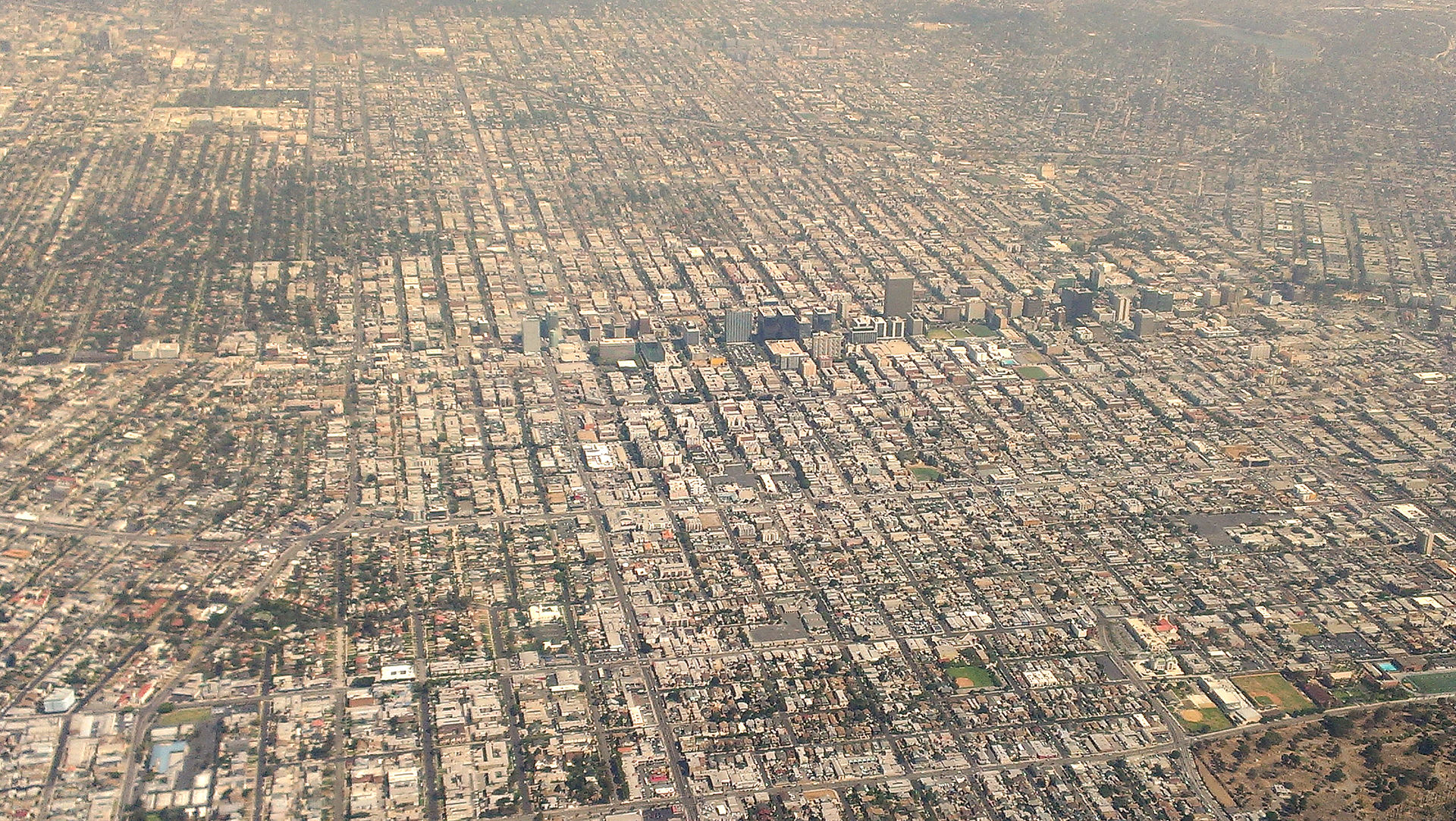 AAT: The Scholar Ellen Wu wrote beautifully about the history of China and Japan Towns in the United States, unfortunately, I know far less about the history of Korean Towns in the United States.If it’s possible, could you provide us a brief history of L.A’s Korea Town? Or if this is too big a question, could you provide us with a few scholars, writers, or other ways to better understand the history of Korea town
AAT: The Scholar Ellen Wu wrote beautifully about the history of China and Japan Towns in the United States, unfortunately, I know far less about the history of Korean Towns in the United States.If it’s possible, could you provide us a brief history of L.A’s Korea Town? Or if this is too big a question, could you provide us with a few scholars, writers, or other ways to better understand the history of Korea town
KTFA: When the Hart-Celler Act of 1965 created a new passage for immigrants allowed in the United States, thousands of Koreans moved to Southern California either to join their families who moved in the first waves, or to start a new chapter. One of these immigrants was Hi Duk Lee, who is known in L.A. history for sparking the formation of Koreatown after opening the first Korean-driven market in 1971. Noting the lack of Korean-centric stores in Los Angeles, he set up shop and encouraged his network to build Korean restaurants and vendors near his. To provide space for them, he began to buy up devalued land (a result of white flight to suburban areas after the Great Depression and the Watts rebellion in 1965) up and down major streets that make up the borders of Koreatown today. Up until this time, the Korean diaspora in Los Angeles was scattered throughout racially restrictive neighborhoods. With several identity-affirming community spaces and businesses set up, this neighborhood started to serve as a hub for Korean families across the county.
Koreatown was ravaged by the ‘92 uprising, which was stirred by the murder of 15-year-old Latasha Harlins and the acquittal of four policemen charged with the beating of motorist Rodney King. Many residents at the time felt abandoned by the city, and small business owners were left to recover and cover damages from the unrest. The decade that followed was one of much reflection as later generation immigrants began to rebuild the Koreatown identity.
Currently, the neighborhood remains predominantly home to Latinx families, though it remains a touchpoint for Korean families spread across L.A. County. It’s known for being a walkable, friendly neighborhood for working-class and low-income families, though it is also becoming a site for new big-ticket development.
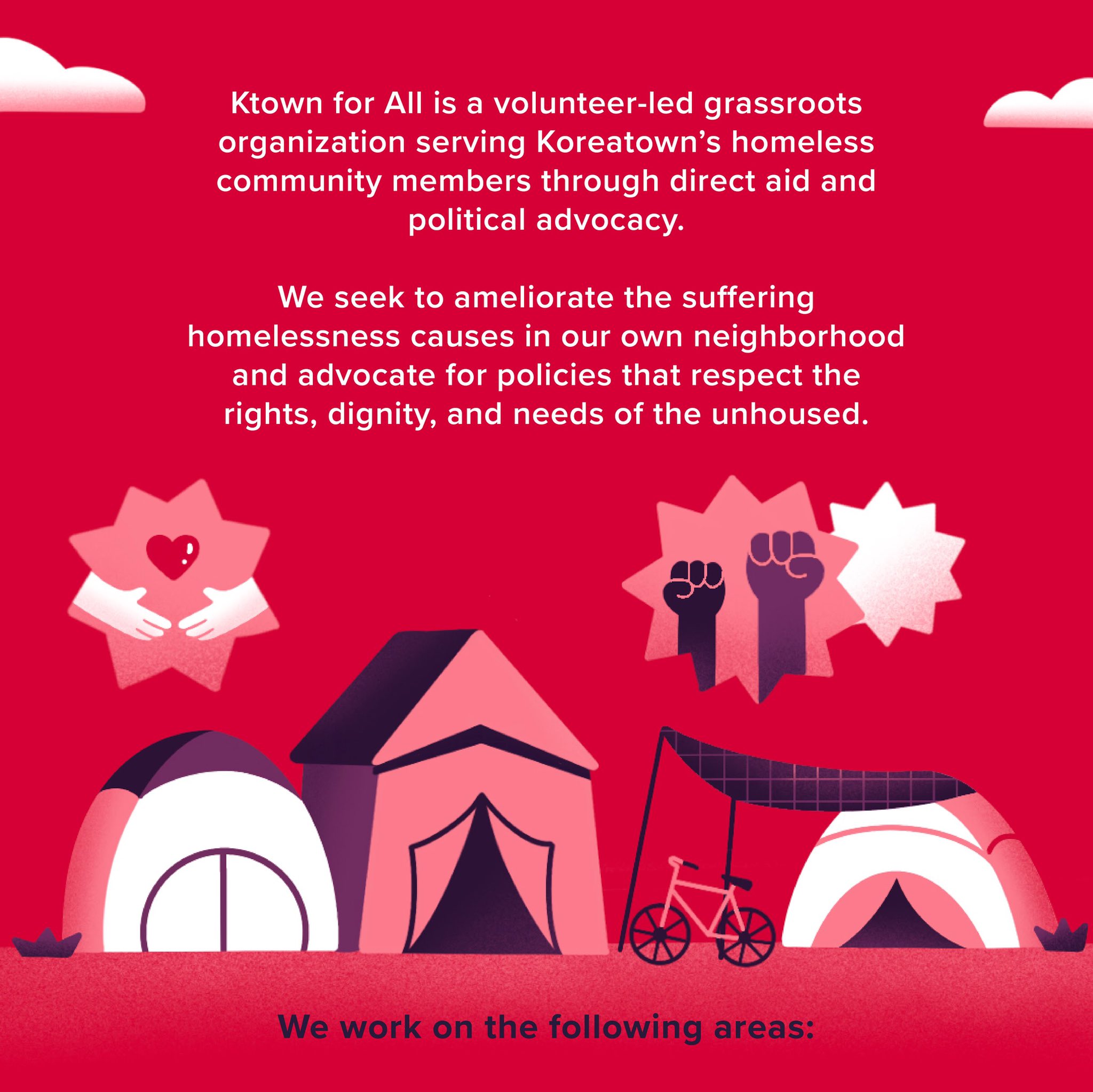
(Photo from Ktown for All, Source: Twitter)
AAT: LA Times Journalist Frank Shyong has done a great job looking at the solidarity and sense of identity that businesses within China Towns, Little Manila, or Korea Town often represent. That these businesses take on meanings far richer to the community than simply a vessel for profit like a Real Estate Firm, Tech Company or Chain Restaurant might.
For Korea Town, could you discuss any spaces that, while they are businesses, in fact provide a far greater sense of community, solidarity or perhaps in the COVID19 Crisis; Mutual Aid that is far more important to reproducing or protecting the community than any profit they make?
KTFA: Liberty Park is a small patch of grass and trees on Wilshire Ave. that is owned by Jamison Development, a notorious slumlord and real estate developer. Koreatown is extremely lacking in green space, and this small park counts as one of a handful of parks in the neighborhood. Liberty Park has been the site of monthly gatherings for Ktown for Black Lives, an unaffiliated coalition of organizers, of which we are a part of. These monthly gatherings provide a forum for community members to discuss how to be in solidarity with Black lives. They are also a collection point for mutual aid supplies. Despite being privately owned, Liberty Park has evolved into an important community space. Organizers of Ktown for Black Lives intentionally chose the space to informally reclaim it for the community. A few years ago, activists resisted Jamison’s attempt to convert the park into a market-rate development, leading to Jamison’s CEO threatening to shoot protestors with an AR-15.
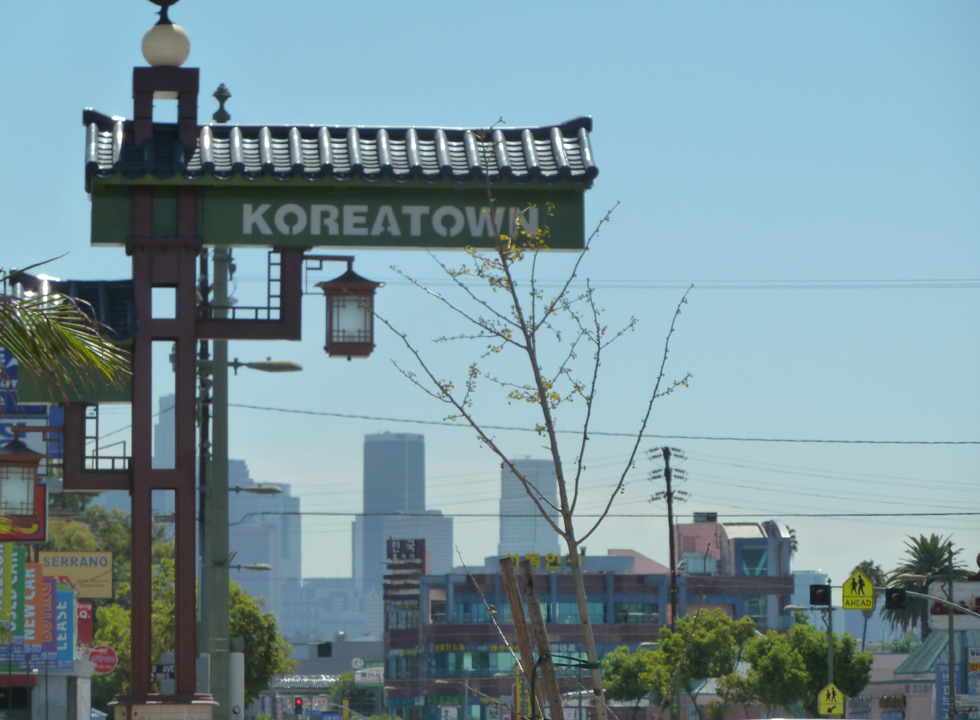 (Koreatown’s welcome sign)
(Koreatown’s welcome sign)
AAT: Likewise, Mr. Shyong points out that many of these communities are under threat. Oftentimes from capitalists who want to turn businesses that serve the community, into blunt vehicles strictly for profit-making. For Korea Town currently, what are some of the threats, either from capitalists or from government officials working at their behest, to the community and way of life that’s been built up there?
KTFA: Our work in homelessness stems directly from gentrification. Koreatown’s homelessness crisis is a political choice by our elected officials who have chosen to neglect the community’s need for truly affordable housing, a living wage, and a quality standard of living. LA City Council has long prioritized the interests of corporate developers, investors, and the police union rather than the majority of low-income renters they ostensibly represent. As a result of the relationship between our elected officials and their donors, homelessness skyrockets as real estate speculation drives up rents. In response to the visible signs of poverty on the streets, our elected officials pour money into the LAPD budget, hoping to erase homelessness through criminalization and banishment.
AAT: The very real biological threat to all our communities at the moment is COVID-19. How has K Town so far endured this crisis? And what side effects (unemployment, white supremacist racism, police violence) have also been challenges that have emerged for Ktown during this pandemic?
KTFA: We were unprepared to meet the need for basic hygiene and other resources that became scarce, such as food. Ktown for All has been advocating for handwashing stations at encampments for over a year. The city finally deployed handwashing stations at encampments weeks after the emergency declaration. With the abrupt closure of libraries, community centers, and restaurants, our unhoused neighbors faced shortages in food and other amenities found at these places, such as electricity, bathrooms, and air conditioning. These sudden changes caused hardship among already vulnerable people. We have done our best to continue our outreach program in a modified form to help meet some of these needs experienced by our unhoused neighbors in Koreatown.
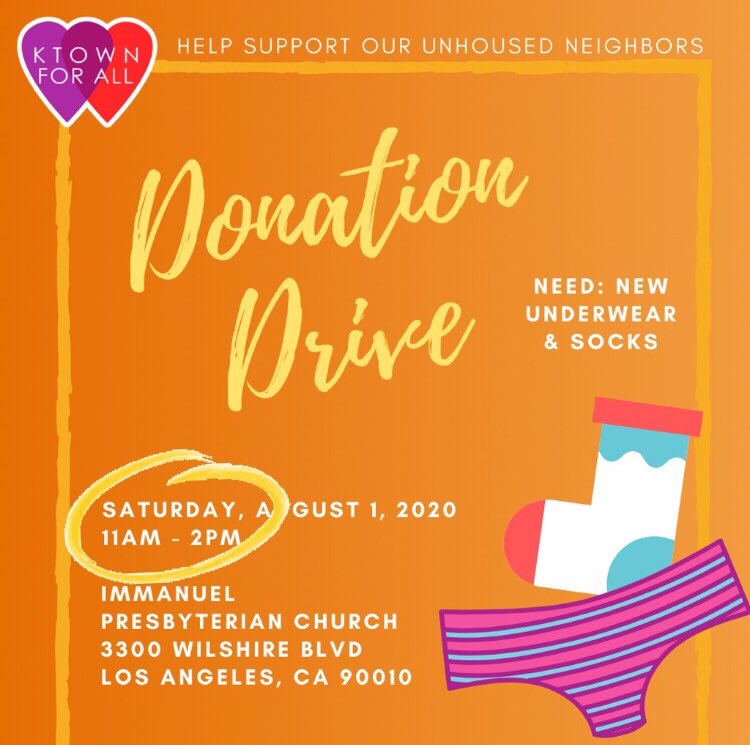
(Photo from Ktown for All, Source: Twitter)
AAT: Turning to the second part of your name, I wanted to ask about the “all” in KtownForAll. In Korea Town, who are those who are currently being excluded from the community, and what are the processes that continue or exacerbate these processes of exclusion? And how, historically has KtownForAll worked to include these individuals, or build bridges that if crossed allow for inclusion?
KTFA: We know that the most marginalized group in Koreatown often are unhoused people. Looking at the data, we know that a lot of unhoused Koreatown residents were once housed here. Their housing status does not remove the title of neighbors from them. We specifically refer to them as “unhoused neighbors” for this reason. We regularly see them kicked out of restaurants and stores, even when they have money to pay. There are large marches opposing attempts to house them in the neighborhood. It’s a very targeted “othering” that occurs towards the unhoused community. They live here and they deserve to be included in conversations about community and the future of Koreatown. We also recognize that a political program that addresses the root causes of poverty and homelessness will necessarily be one that works for the mass of Angelenos, not just the wealthy and powerful. That’s why we place an emphasis on ‘all’.
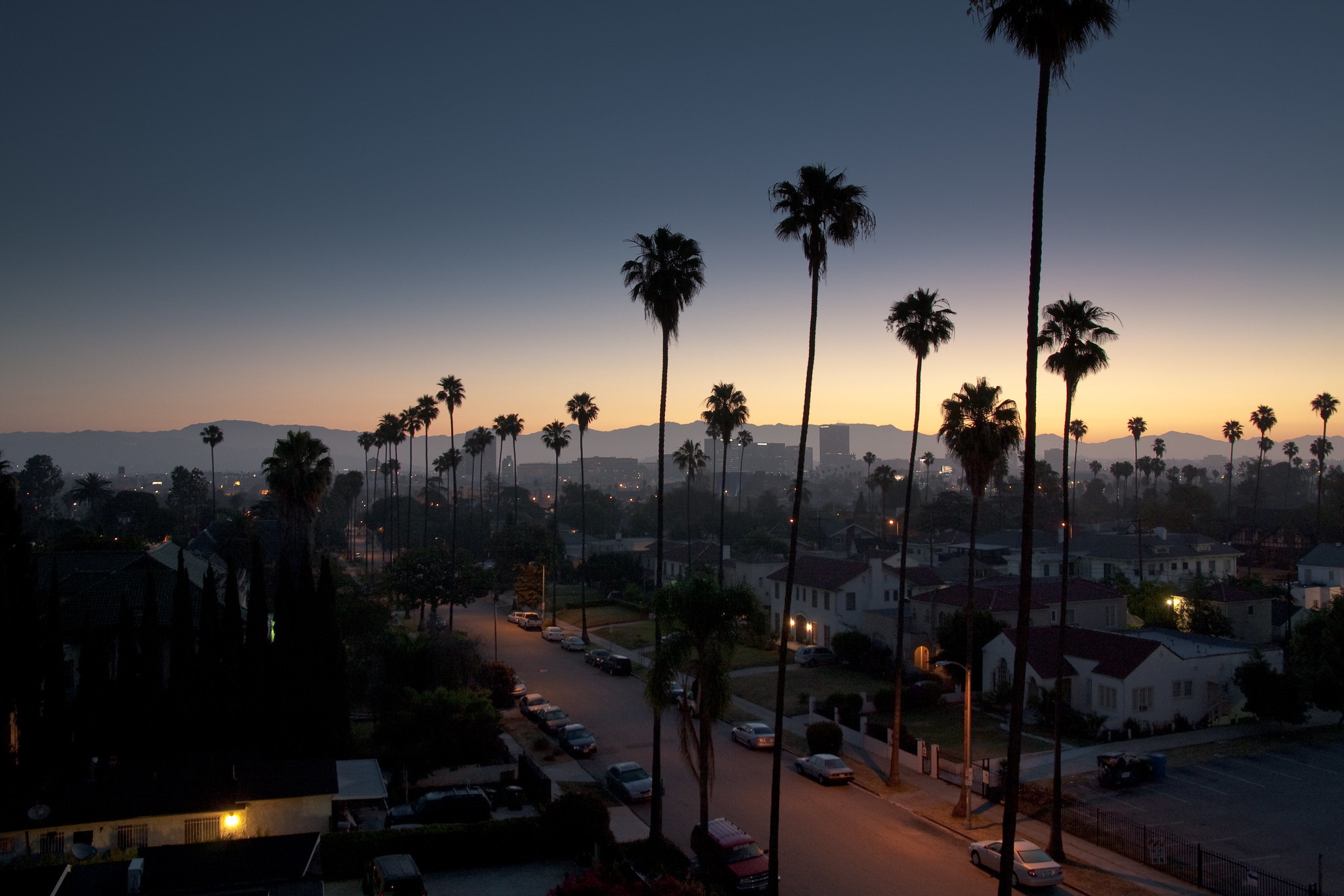
(A Photo of Korea Town at night . Photo Credit: SHAWN LIPOWSKI, Flickr)
AAT: We’ve been very interested in how Mutual Aid Networks have sprung up globally to support communities during COVID-19 where the government or capital is either absent or outright hostile. What have Mutual Aid efforts Looked like in K Town? And like the Hong Kong to UK Mask Circuitare their transnational networks of mutual aid between K Town and South Korea?
KTFA: Mutual aid has looked like meeting the basic survival needs of our unhoused neighbors through the support and resource gathering of other housed neighbors. A lot of shelters and food supplying non-profits closed or severely reduced their reach during COVID which left a large gap for us to try to fill. Life-saving cooling shelters were closed during this last heatwave so we distributed frozen water bottles and have developed a DIY air conditioning system made of styrofoam and a handheld fan. The city’s outreach to the unhoused population was dismal so we were often the ones breaking the news of the pandemic to them, and trying to communicate COVID safety to them. Our usual care packages now include a zine that updates them on local news, as well as masks and hand sanitizer. The city has now installed bathrooms and handwashing stations at some encampments, (something we had been requesting for the last year) but that was only after we launched our own campaign to develop hand washing stations with buckets of water and donated soap.
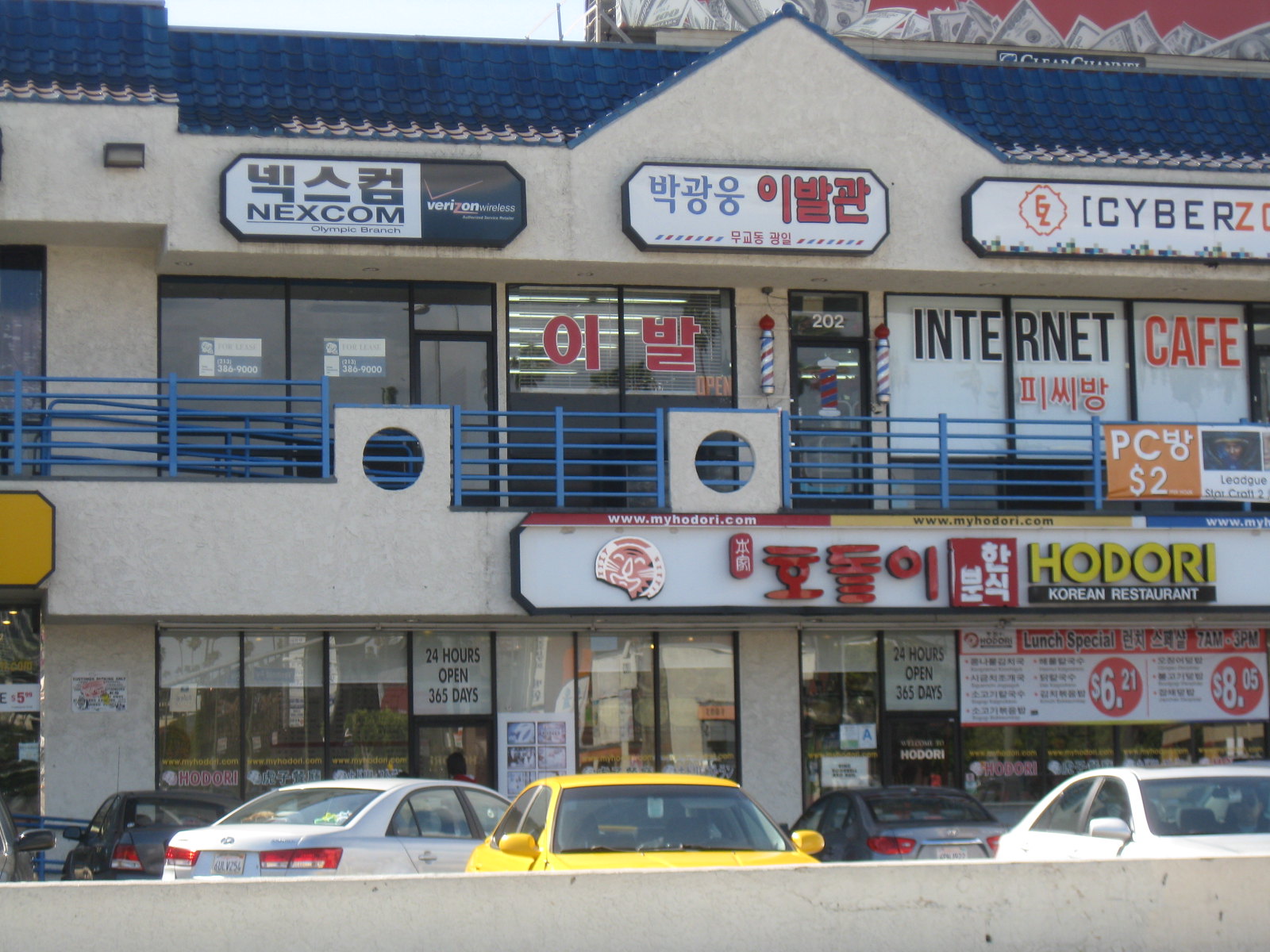
(Stores in Koreatown. Photo Credit: FriscoCali – Flickr)
AAT: And as a flipside to this, how has the government (either the State of California or the city of LA) failed citizens both in K Town but throughout the state? What are the forces or interests driving these failures? In other words are they mistakes, or deliberate decisions made to sacrifice the health of certain citizens for profit, political gain or other benefits to power?
KTFA: The failure comes from all levels of government prioritizing profit over the needs of people. Luxury apartments are constructed rather than affordable units for working-class people, because Koreatown is now considered an attractive, up and coming neighborhood by investors and developers. For decades the people have been promised that with luxury development comes more affordable options for the working class. A trickle-down housing of sorts. Clearly not. The homeless count numbers were released and there was a 12% increase in unhoused people in one year in the city of Los Angeles, before the pandemic. We live in the wealthiest country on earth, of probably all human existence. And yet, our society allows, and perpetuates, the existence of an underclass of people who have to fight tooth and nail to stay alive on the streets.
AAT: Going forward, what will be the main challenges for Ktown and do you believe that in this crisis you’ve built connections with other communities who will fight with you intersectionally, for the future of Ktown? If so, who will you be fighting and how do you plan to fight back?
The main challenges facing Koreatown now and in the future are similar to the challenges facing all working-class communities of color – a lack of well-paying employment available to the residents, the desperate need for high-quality affordable housing, lack of adequate public transportation, inadequate access to medical care, etc. These are all byproducts of structural racism, inequality, and austerity. We hope to continue to build bonds with all who are involved in the movements to fight against these forces and fight for a city that loves all of its residents.
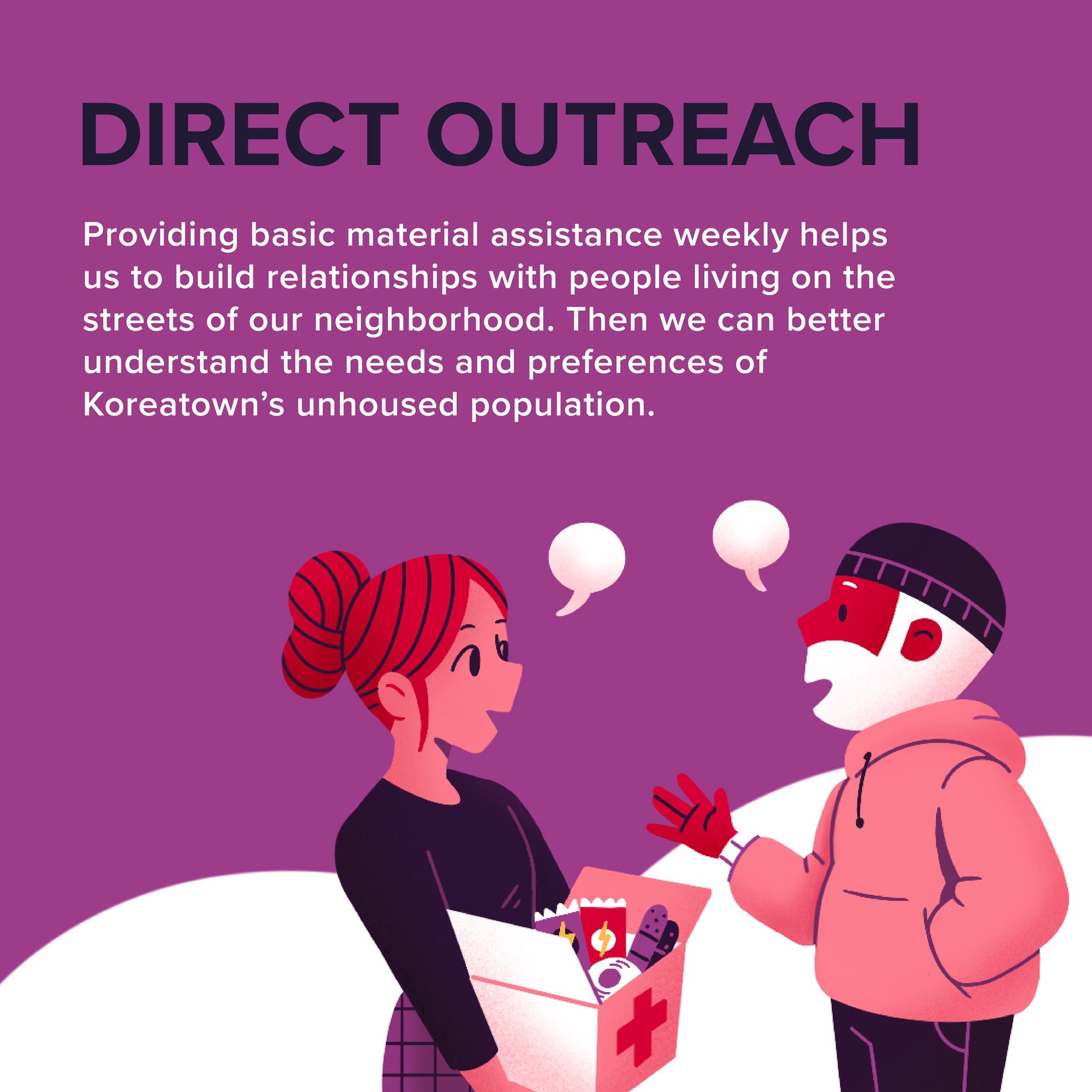
(Photo from Ktown for All, Source: Twitter)
AAT: With the recent protests over police violence, systemic racism, anti-blackness, and white supremacy, how has K-town for all been reaching out to the community to explain measures such as Reforming, Defunding or Abolishing the Police? And how doing so would be transformative and liberatory to the K-Town Community?
KTFA: Many of our unhoused neighbors face hurdles when attempting to access local news or information about local programs and resources. When the COVID 19 crisis started, a lot of our neighbors hadn’t even heard of the pandemic. Some of our unhoused neighbors found out about the pandemic about a month after the state of emergency was declared by the governor. Because of issues like this, Ktown For All has started our own zine that we include in our care packages that we distribute through our outreach program. The zine is a short collection of articles written by local activists about events and issues in Los Angeles. We also use this to try to disseminate important information about where unhoused people can access resources.
More broadly, K4A reaches out to the community via our social media accounts, where have thousands of followers, most of whom are Angelenos. We shed a light on the obstacles that our unhoused neighbors face in Los Angeles every day and try to inspire our followers to become involved in local politics. We want to educate the community about the way our city is being governed, functionally and morally. This is a necessary step to being able to collectively engage with those institutions and win on issues of critical importance to the most vulnerable people in our city.
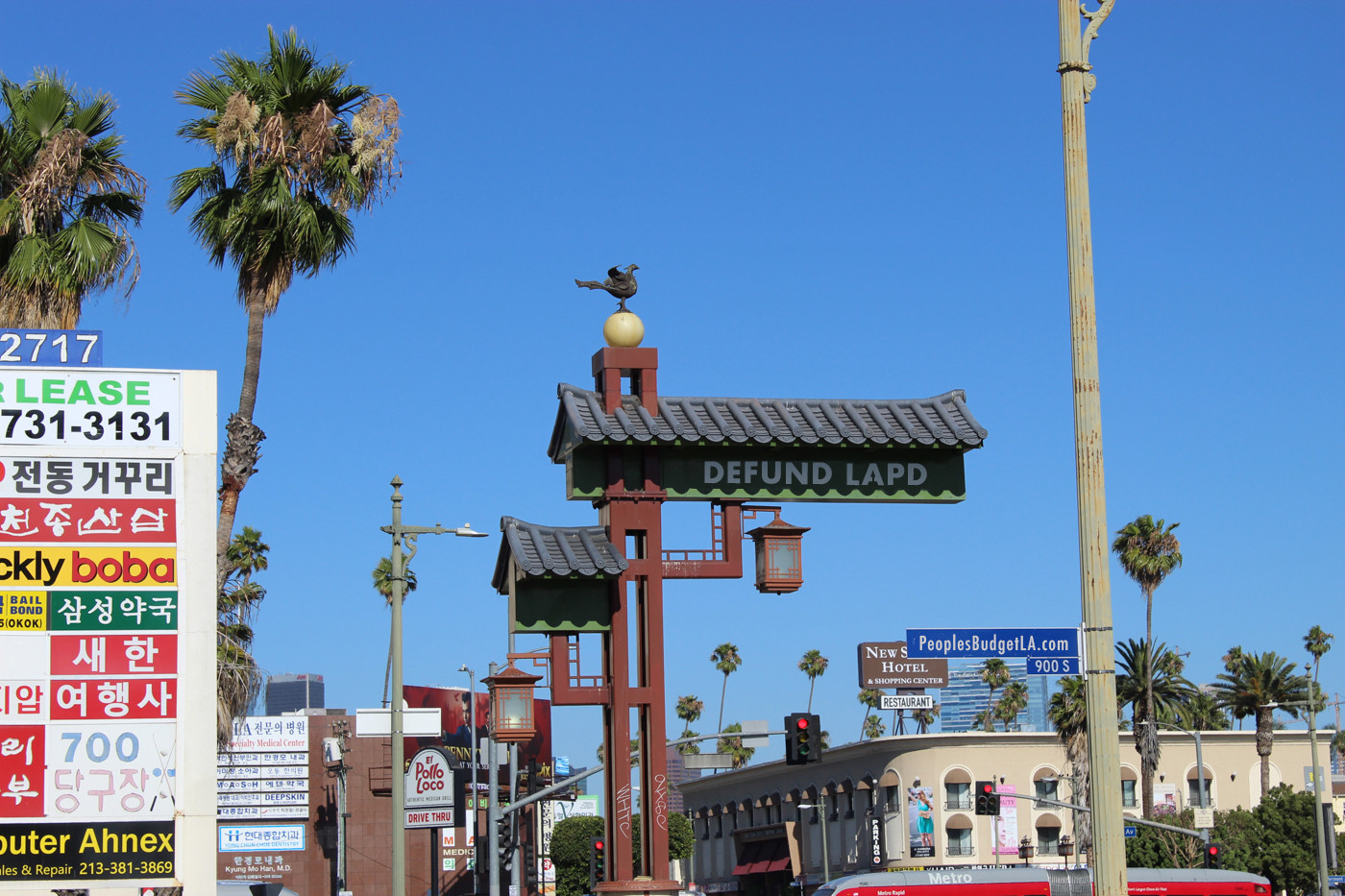
(Photoshop from Ktown for All, Source: Twitter)
AAT: Lastly, for K-town for all, where do they stand on reform/defund/abolish when it comes to policing and why?
KTFA: Ktown For All is particularly sensitive to the failures of the gutting of social safety nets. We see first hand the devastating effect cutting funding to schools, public health, public housing programs, and other essential services have on the community. We also see first hand the atrocities that occur when our leaders over militarize and overfund our already bloated police department. We hear stories from our unhoused neighbors of police brutality used against them in moments in regular ‘sweeps’ and in moments of a mental health crisis. Los Angles does not have any well-funded alternatives to the LAPD. We need to defund the police, which takes up 53% of the city budget, and fund services that will not only be able to adequately address an unhoused person in crisis without resorting to violence. Defunding the police will not only allow us to fund alternatives to the police but also allow us to invest in programs that prevent poverty and criminalization.
For more w. Ktown for All please check out their website here: https://ktownforall.org/
You can also reach them on Twitter: @ktownforall
